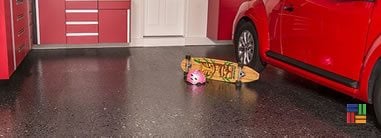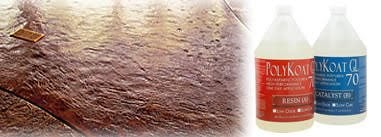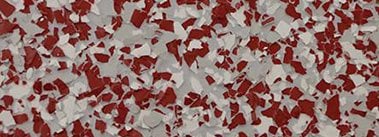What causes cracks in a garage floor?
There are a number of factors that can contribute to cracks in a concrete garage floor. The most common causes include concrete shrinkage, poor construction techniques, heavy vehicle loads, subgrade settlement, and exposure to freeze-thaw cycles. Your garage floor is also likely to crack due to natural expansion and contraction if control joints weren’t installed or they’re improperly placed.
How do you repair a cracked garage floor?
Minor cracks in a garage floor (no wider than 1/4) can easily be filled using a pourable concrete crack filler that flows into the cracks and self-levels, ensuring that you fill the crack completely. For wider or deeper cracks that extend through the entire thickness of the floor, a concrete patching compound is typically used. These products are often reinforced with vinyl resins and fine sand to add strength and flexibility to the repair.
Keep in mind that the process of repairing larger cracks in a concrete garage floor may require a high level of expertise and the use of additional tools and materials. If you have extensive cracking in your concrete slab, consider consulting a professional who can assess the severity of the cracks and recommend the best repair method for your particular situation.
Learn more about how to fix cracks in concrete slabs and choosing a concrete crack filler.
Does an epoxy garage floor crack?
Epoxy coatings for concrete garage floors are highly durable and resistant to cracking, but they aren’t crack-proof. Factors that might cause an epoxy-coated garage floor to crack include substrate movement, improper installation, and poor substrate preparation. In addition, epoxy coatings tend to be hard and brittle, making them vulnerable to damage from heavy impact.
How do I prevent a garage floor from cracking?
If you plan to build a new home or add a garage to your existing home, there are some proactive steps you can take to minimize the occurrence of cracks in your garage floor and extend its lifespan. The first, and most important, is to hire a reputable concrete contractor who follows proper construction techniques and uses high-quality materials. Other preventive measures include:
- Providing uniform support for the floor slab by placing it on a well-compacted subgrade.
- Making sure the floor is adequately reinforced to withstand normal vehicle loads (see our guide to reinforcing concrete slabs).
- Properly sloping the area surrounding your garage to prevent water accumulation, which could lead to soil erosion and slab settlement.
- Not overloading the garage floor with heavy vehicles or equipment over the weight limits it was designed to support.
- Installing control joints in the slab to allow for movement caused by temperature changes and drying shrinkage.
- Applying a concrete sealer to prevent the penetration of moisture, chemicals, and deicing salts.
If cracks do occur in your garage floor despite taking these precautions, they are likely to be minor and won’t detract from its performance. But if the cracks continue to get larger over time, you should have them evaluated by a professional to determine the cause.
Can you epoxy over a cracked garage floor?
Epoxy coatings are great for hiding minor hairline cracks in concrete floors, but if the cracks are more serious, they must be repaired first. Though epoxy coatings are self-leveling, they will not fill in or bridge cracks. If you plan to apply an epoxy coating system, make sure your garage floor is as flawless as possible. This is essential if you want to prevent cracks or other imperfections from telegraphing through to the epoxy flooring.
How do I decide whether to repair or replace a cracked garage floor?
The decision often depends on the extent of the damage and your budget. Although small cracks and minor damage can often be repaired with epoxy-based crack fillers or concrete resurfacing products, larger cracks caused by structural issues often require complete slab replacement.
When it comes to cost, crack repair is generally more economical than slab replacement, but it won’t be the most permanent or attractive solution. If you want a long-term fix, investing in a new floor is often a better option. Plus, if you plan to sell your home soon, installing a new concrete garage floor could increase your home’s value.
Can I repair garage floor cracks myself?
Yes, you can repair a cracked garage floor yourself, especially if the cracks are minor. Although DIY crack repairs can save money, you need to use the right tools and materials to ensure a permanent fix. If you’re dealing with major cracks or feel unsure about the repair process, it’s wiser to seek the help of a professional who has the tools and know-how to do the job right.
RELATED:
The Complete Guide to Painted Concrete Floors
Choosing the Best Concrete Epoxy Floor Coating






